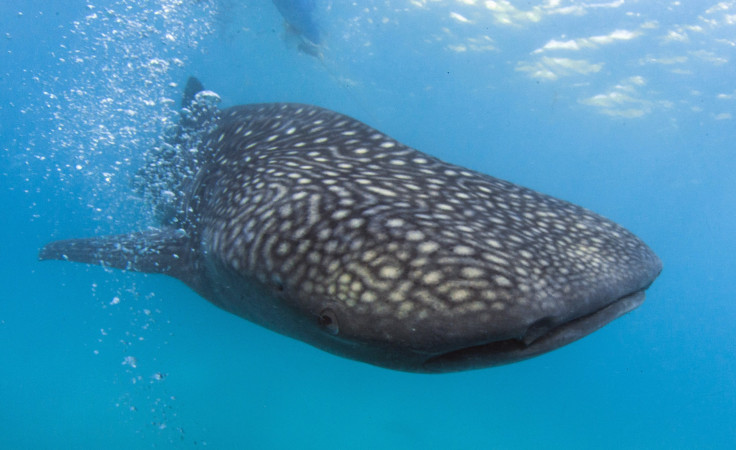Whale sharks of Indonesia: Incredible ‘road trips’ to faraway destinations still a mystery [VIDEO]

When Conservation International placed tracking devices on whale sharks in Indonesia and set up near real-time monitoring of their movements, little did they know that the devices would reveal incredible mysteries about the gentle giant fish. The scientists are now scratching their heads as they find the whale sharks are in many ways a scientific mystery. One of the interesting finds is that the giant fish take amazing “road trips” to faraway destinations.
Scientists attached fin-mounted cameras on 16 whale sharks last year in Cendrawasih Bay in eastern Indonesia's Birds Head region. The experts partnered with local fishermen to plant this technology as whale sharks are massive in size and hard to catch. One of the sharks got caught in the net when the scientists placed the tracker and released it.
Scientists believed that the group of whale sharks mostly hung out in the bay, often seen by divers. However, they found out that the fish often swam up to 1,300 kilometres away to the Philippines, Papua New Guinea, and Palau and then return to Bird’s Head. These long voyages were often just short “road trips” for the fish. One of the sharks even dived down nearly 6,000 feet in the deep oceans.
The reasons for these trips are still unclear. They may be related to mating or were simply culinary adventures. Ninety-seven percent of the Cendrawasih Bay whale sharks were found to be female. No one knows where the older or female sharks are.
“Where are all the females? Where are the large adults? And where are the babies? Where do they mate, and where do they give birth? It’s amazing that these very basic questions are still largely unknown for whale sharks not only in the Bird’s Head, but worldwide. It’s a reminder of just how little we know, even today, about life in the sea,” Conservation international’s vice president of Asia-Pacific marine programs, Mark Erdmann, wrote in the company blog.
Whale sharks can reach lengths of 15 metres and weigh an average of 20.6 tonnes. They play important roles in their ecosystem by filtering baitfish and small organisms in water. They also form the basis of ecotourism operations.
Watch Scientists Tag World’s Largest Fish, Whale Sharks here.
Source YouTube/Conservation International





















